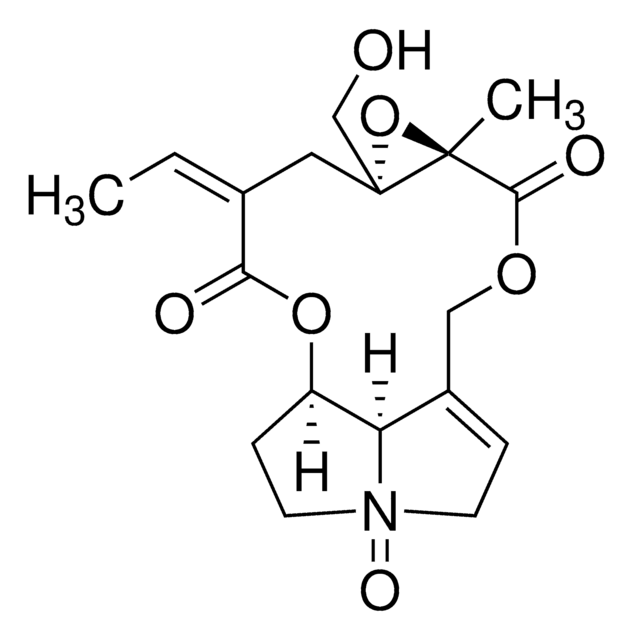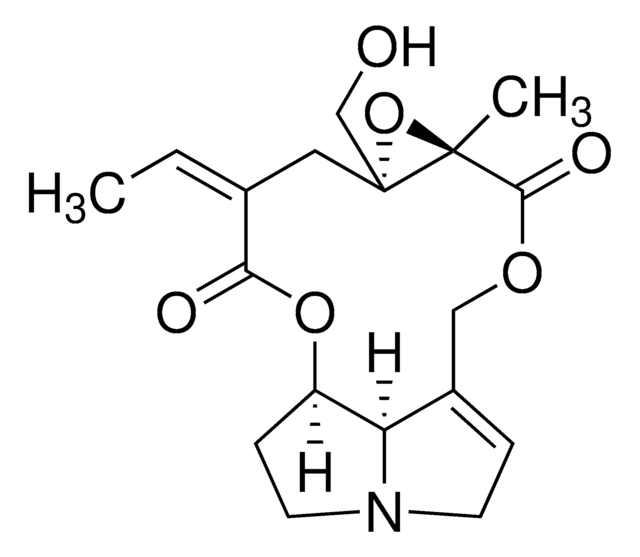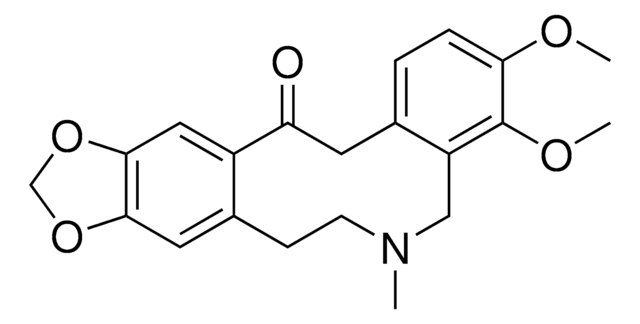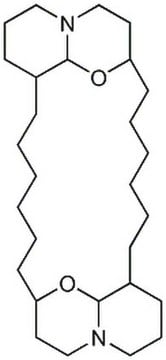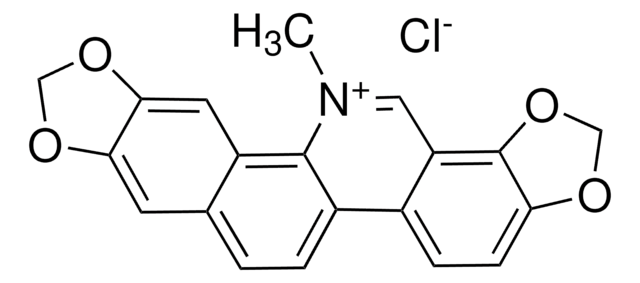220285
Chelerythrine Chloride
Naturally-occurring alkaloid.
Sinónimos:
Chelerythrine Chloride
About This Item
Productos recomendados
Quality Level
assay
≥97% (HPLC)
form
solid
potency
660 nM IC50
manufacturer/tradename
Calbiochem®
storage condition
OK to freeze
color
light yellow to yellow
solubility
water: 1 mg/mL
DMSO: 10 mg/mL
shipped in
ambient
storage temp.
−20°C
InChI
1S/C21H18NO4.ClH/c1-22-10-16-13(6-7-17(23-2)21(16)24-3)14-5-4-12-8-18-19(26-11-25-18)9-15(12)20(14)22;/h4-10H,11H2,1-3H3;1H/q+1;/p-1
InChI key
WEEFNMFMNMASJY-UHFFFAOYSA-M
General description
Biochem/physiol Actions
PKC
Warning
Preparation Note
Reconstitution
Other Notes
Jarvis, W.D., et al. 1994. Cancer Res.54, 1707.
Barg, J., et al. 1992. J. Neurochem.59, 1145.
Herbert, J.M., et al. 1990. Biochem. Biophys. Res. Commun.172, 993.
Ko, F., et al. 1990. Biochim. Biophys. Acta1052, 360.
Walterova, D., et al. J. Med. Chem.24, 1100.
Legal Information
signalword
Warning
Hazard Classifications
Acute Tox. 4 Dermal - Acute Tox. 4 Inhalation - Acute Tox. 4 Oral - Eye Irrit. 2 - Skin Irrit. 2 - STOT SE 3
target_organs
Respiratory system
Storage Class
11 - Combustible Solids
wgk_germany
WGK 3
flash_point_f
Not applicable
flash_point_c
Not applicable
Certificados de análisis (COA)
Busque Certificados de análisis (COA) introduciendo el número de lote del producto. Los números de lote se encuentran en la etiqueta del producto después de las palabras «Lot» o «Batch»
¿Ya tiene este producto?
Encuentre la documentación para los productos que ha comprado recientemente en la Biblioteca de documentos.
Nuestro equipo de científicos tiene experiencia en todas las áreas de investigación: Ciencias de la vida, Ciencia de los materiales, Síntesis química, Cromatografía, Analítica y muchas otras.
Póngase en contacto con el Servicio técnico
